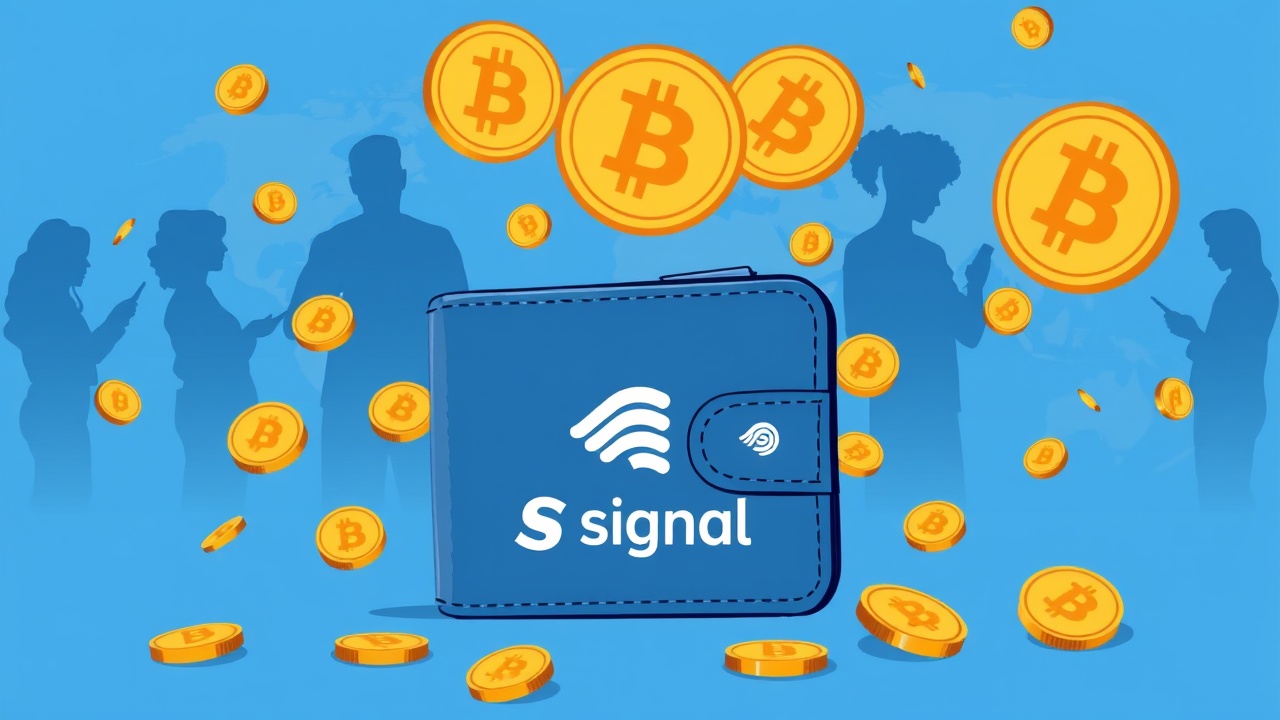Bitcoin for Signal Campaign
A new campaign named “Bitcoin for Signal” is aiming to embed Bitcoin payment capabilities into the privacy-centric messaging application, Signal, leveraging the Cashu protocol. This initiative has gained significant support from notable cryptocurrency figures like Jack Dorsey, who has been a prominent advocate for Bitcoin’s growth and usability beyond merely a store of value. Dorsey expressed his support for the project via social media platform X, encouraging Signal to embrace Bitcoin integration.
Origins and Goals
The initiative was born from the mind of a pseudonymous Bitcoin developer known only as Cashu, who is advocating for the adoption of Chaumian Ecash technology, designed to facilitate private and censorship-resistant transactions within the app. Proponents believe that integrating Bitcoin payments would enhance Signal’s commitment to user privacy and independence. This move could potentially enable the platform’s user base — approximately 70 million monthly users — to conduct peer-to-peer transactions in a more discreet manner.
Criticism and Concerns
However, the campaign faces criticism primarily focused on Signal’s existing cryptocurrency payment system, MobileCoin (MOB), which has been labeled a failure by Bitcoin developers like Peter Todd due to its centralized nature and lack of broad accessibility. MobileCoin was introduced to Signal in 2021 but has drawn ire from the Bitcoin community due to its reliance on a limited set of validators and insufficient transparency.
Critics of the Bitcoin integration have voiced concerns that the inherent transparency of Bitcoin’s blockchain could clash with Signal’s privacy-first approach. For instance, José Pedro Sousa, an engineer at Aztec Network, raised questions about the rationale behind a privacy messaging service utilizing a public blockchain. Digital rights advocates, including the group Techlore, warned that leveraging Bitcoin could undermine user anonymity, prompting some privacy proponents to advocate for alternative cryptocurrencies such as Monero and Zcash, which offer enhanced privacy features.
Context of Privacy Issues
The backdrop to this campaign includes rising privacy issues within the European Union, where legislators have recently postponed a vote on a contentious “Chat Control” law. This proposed regulation would mandate that encrypted messaging services, including Signal and WhatsApp, monitor private communications for potential child abuse materials. The postponement was primarily driven by Germany’s contention that the legislation would infringe upon constitutional privacy rights, with a new vote slated for early December.
As the conversation around digital privacy heats up, the future of Bitcoin’s role in platforms designed for secure communication remains uncertain and contentious.




